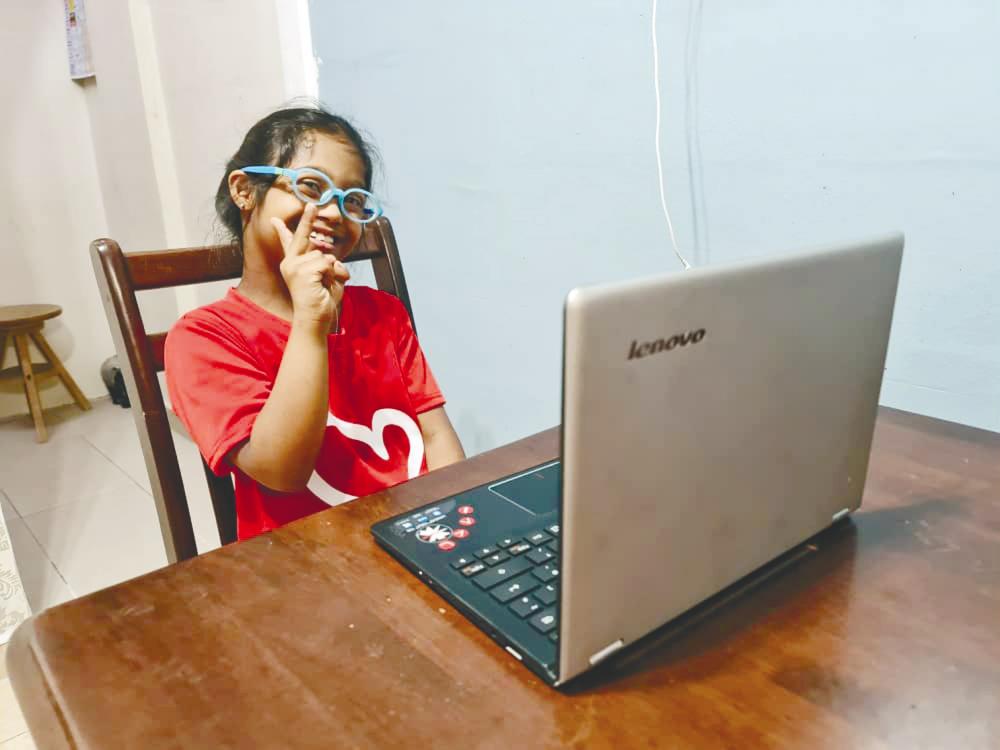THESE days, babies are like a minute-old when their first picture is taken. From then on, they are technologically infused with digital intelligence. They grow up at the speed of technology.
The Alpha generation, children born after 2010, are not afraid of technology. They manipulate their little fingers to scroll on touch screens and transfer thoughts online in seconds.
Almost everything we do today has an atom of technology in it. From our smart devices to advanced computers and sophisticated engineering equipment – technology is all around and is constantly innovating; creating and exploring new ideas.
Children have had their own coping mechanisms and have kept themselves busy by creating short videos, posting it on social platforms such as TikTok – a creative outlet for children as young as six years.
Challenging apps spark their creativity and makes them evolve, without being overwhelming. They post their views on platforms like Instagram, get recognition and feedback to improve their standards.
Parents have claimed that they were genuinely surprised at their creativity skills, which they were completely unaware of. Not surprisingly, parents have claimed to have learnt new things from their children during the lockdowns due to the pandemic. Hence, while there were closures in schools, schooling and learning continued virtually, creating groups of children who tapped their own potential independent of teachers, and even parents.
Sadly, at least 40% of our children are pitifully left behind from this creative world because of a digital divide between children who can afford sophisticated devices and children who have no access to even a simple online device.
For most “have nots”, this means substantial reduction in creative skills for disadvantaged children, who pay the greatest price. They could be those who fall the furthest behind, with no technical resources to “catch up” post pandemic.
To this end, BAC Education Group managing director Raja Singham launched the 1MillionDevices (1MD) campaign in September 2021 to address digital poverty in Malaysia under BAC’s UPLIFT pogramme.
1MD takes old donated computers and refurbishes them to perfect working order, to be dispersed among the community. His vision is to deliver one million digital devices to economically disadvantaged children in the next few years.
“To make this work, we appeal to people to give us unused laptops. This is a collaborative effort of all stakeholders who have a role to play in uplifting the digital literacy and technological status of the country. In line with the Fourth Industrial Revolution, or IR4.0, addressing digital poverty should be a key priority.
“So far, only 106 children from the following communities received tablets, refurbished laptops and new laptops over the last year. BAC has 600 children on a database waiting to receive laptops,” said Raja Singham.
One of the children who was given a tablet was Manisha Sri Kandasamy. Being a down-syndrome child as well as being partially blind, she was unable to attend physical classes and was deprived of proper learning. Manisha’s parents were out of jobs during the pandemic and were facing challenging times, even to have a meal a day. And yet the chirpy and happy child was excited and overwhelmed with gratitude and excitement when she received the tablet.
There are currently about 7,500 primary and 1,500 secondary schools in Malaysia, most of which are in rural areas. Factors like class, race and geography have deterred and denied this opportunity on these basis. It is a sad era of missed opportunities for these children.
The government has addressed education in technology inadequately, through patchwork programmes, some of which were initiated during the landline telephones era.
Like Singapore, our government should give free laptops to every family. Surely we can afford it if we cut a fraction of some government expenses. Also, these devices are getting cheaper and may cost much less if they are purchased on a large scale, like the current free school textbook scheme.
New technologies like augmented reality and virtual reality can be incorporated into lessons like Science, History and Geography. These would make learning fun and more effective. Through similar activities, teachers can encourage student self-management and collaborative learning, while fostering their creativity and digital skills.
Even teachers should start learning trending software programmes and applications, with cautionary management subjects on cyber threats, social media, cyberbullying and online scams on the internet.
Though parents should give children the freedom to explore and develop creativity, they have to address the labyrinth of privacy to create a privacy safety net for their children, while being mindful of the time spent on the devices, and manage screen time carefully.
We have come to a point of fatigue in criticising the educational content and the curriculum. Improving telecommunications, with an exposure to the world at large, may be an answer to overcome the present shortcomings.
It could introduce a world class learning in critical thinking, analysing and synthesising information. Technology has surely come a long way. There are billions of inventions yet to be discovered by the upcoming generations, and many more after them. Access to the internet, as a vital technological resource, can open doors to other useful knowledge if used wisely.
Presently, the school curriculum limits children’s access to world knowledge while minimalising the importance of English as an internationally used language. Online learning seems a blessing indeed!
Vasanthi Ramachandran is an author, brand strategist and runs Helping Hands.
Comments: letters@thesundaily.com









